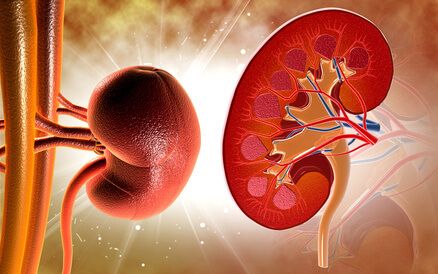Atherosclerotic stenosis of the renal artery is common in the elderly population. Previous clinical trials showed no benefit with angioplasty in relation to renal function but their use for preventing cardiovascular events was still uncertain. A total of 947 patients with atherosclerotic renal artery and systolic hypertension (need two or more drugs) or renal dysfunction were randomized to medical treatment with stent angioplasty or medical treatment only. The primary end point was a composite of death from cardiovascular or renal disease, heart attack, stroke, hospitalization for heart failure or need for dialysis. At 43 months follow-up there was no significant difference in the primary endpoint between the two branches (35.1 % angioplasty versus 35.8 % medical treatment, P = .58). There were no differences between groups considering separately each component of the primary end point. There was a modest but significant reduction in blood pressure with angioplasty (medical therapy -2.3 mm Hg, angioplasty -4.4, p = 0.03).
Conclusion:
The renal artery angioplasty compared with medical treatment does not provide benefits in terms of clinical events in patients with renal artery stenosis and hypertension or renal dysfunction.
Stephen Nicholls
2013-11-19
Original title: Stenting and Medical Therapy for Atherosclerotic Renal-Artery Stenosis





